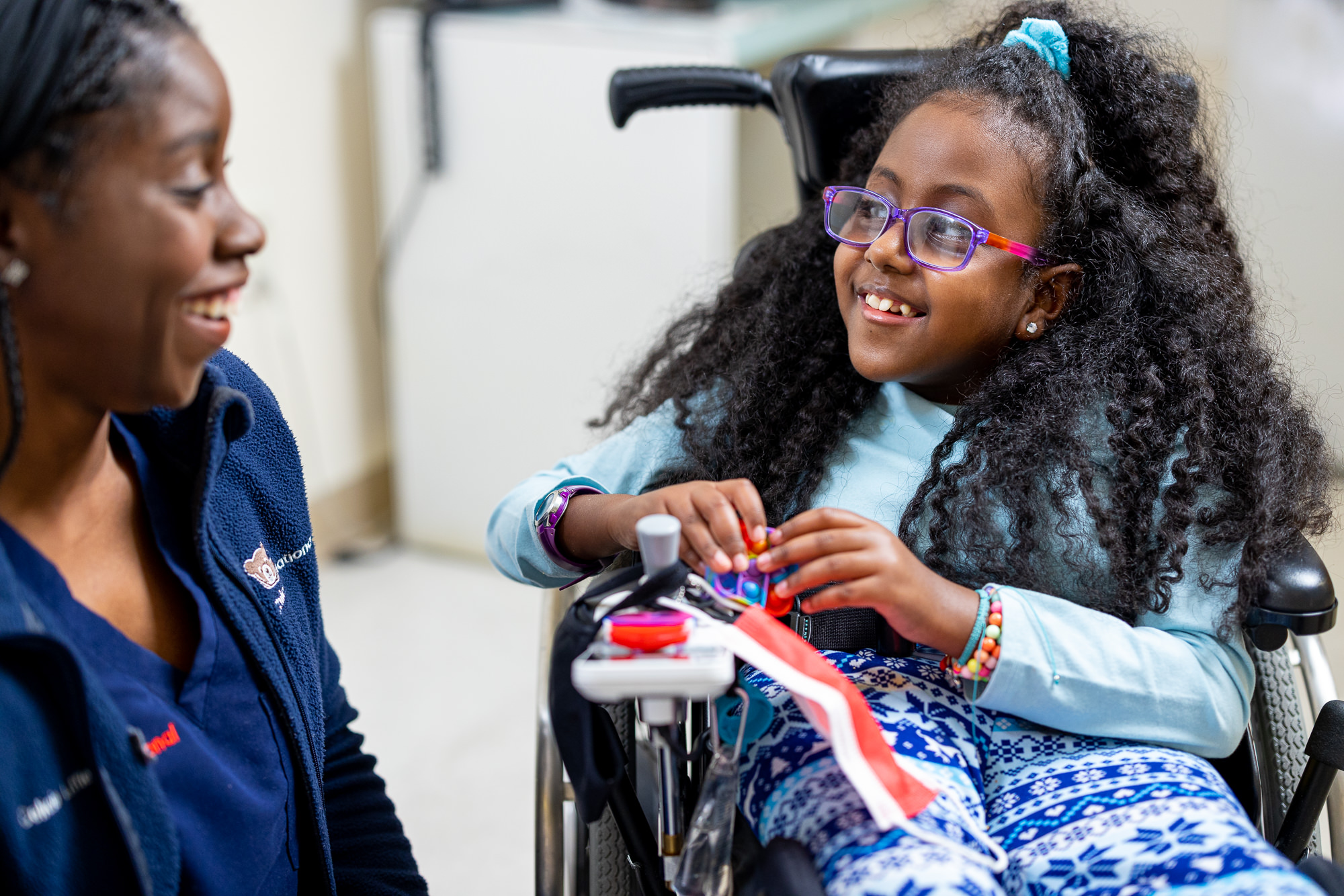

Most children with spina bifida or neurogenic bowel (when the bowel does not work properly) are at risk for constipation because the nerves that control how the bowel works does not form properly. Constipation can begin as early as infancy, or when the child begins eating solid foods. Many children with spina bifida need to take a laxative and/or stool softener to promote regular bowel movements.
The goal is to establish a regular bowel program in order to achieve social continence to maintain healthy bowels. Social continence means having less than two bowel accidents during the day each month.
Initial clean out: An initial clean out is required to empty the stool from the colon. This flushes all the old stool out helps reset it. An X-ray may be ordered to determine whether the bowels are full of stool. Your provider may prescribe a bowel cleanout with Miralax, fleet enema, magnesium citrate or milk of magnesia. For infants, lactulose or glycerin suppositories may be ordered. Your child should take the cleanout medication as directed and continue until there is tea-colored liquid without any solid pieces.
Maintenance: To prevent chronic constipation and incontinence, make sure your child’s routine includes regularly sitting on the toilet and keeping stool soft. Often treatment with a laxative is required. Sometimes a stool softener may be needed as well. Achieving continence with an oral program can be difficult. Close monitoring and staying consistent with K8 medication (a supplement preventing low potassium levels) , toileting and diet regimens are important for success.
The goal is to establish a regular bowel program in order to achieve social continence to maintain healthy bowels. Social continence means having less than two bowel accidents during the day each month.
Initial clean out: An initial clean out is required to empty the stool from the colon. This flushes all the old stool out helps reset it. An X-ray may be ordered to determine whether the bowels are full of stool. Your provider may prescribe a bowel cleanout with Miralax, fleet enema, magnesium citrate or milk of magnesia. For infants, lactulose or glycerin suppositories may be ordered. Your child should take the cleanout medication as directed and continue until there is tea-colored liquid without any solid pieces.
Maintenance: To prevent chronic constipation and incontinence, make sure your child’s routine includes regularly sitting on the toilet and keeping stool soft. Often treatment with a laxative is required. Sometimes a stool softener may be needed as well. Achieving continence with an oral program can be difficult. Close monitoring and staying consistent with K8 medication (a supplement preventing low potassium levels) , toileting and diet regimens are important for success.
Behavior Modification
- We would like to have your child sit on the toilet for 5-15 minutes a day. A digital timer may help. Start with five minutes and gradually increase up to 15 minutes if needed. Give praise if your child uses the timer.
- Be sure your child is eating enough fiber each day. Increase fiber slowly over the two to three weeks by adding one new fiber food every two to three days. Increasing fiber too quickly can cause worsening constipation, gas and cramping.
- 1-3 years: 19 grams of fiber each day
- 4-8 years: 25 grams of fiber each day
- 9-13 years: Female: 26 grams each day. Male: 31 grams each day
- 14-18 years: Female: 26 grams each day. Male: 38 grams each day
- Your child should drink plenty of water during the day. Your provider will help you know how much water your child should drink each day. The formula we use is as follows:
- 100 ml/kg for the first 10 kg body weight
- +50 ml/kg for the next 10 kg body weight
- 20 ml/kg for every kg of body weight over 20 kg.
- Limit milk consumption to no more than 16 ounces for children over 1 year old. Increase intake of low-fat dairy products.
- Your child should not wait too long to go to the bathroom. Encourage your child to take their time.



